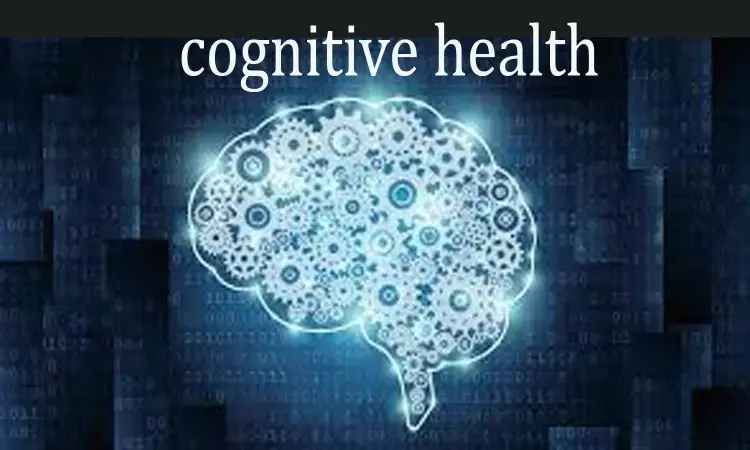- Home
- Medical news & Guidelines
- Anesthesiology
- Cardiology and CTVS
- Critical Care
- Dentistry
- Dermatology
- Diabetes and Endocrinology
- ENT
- Gastroenterology
- Medicine
- Nephrology
- Neurology
- Obstretics-Gynaecology
- Oncology
- Ophthalmology
- Orthopaedics
- Pediatrics-Neonatology
- Psychiatry
- Pulmonology
- Radiology
- Surgery
- Urology
- Laboratory Medicine
- Diet
- Nursing
- Paramedical
- Physiotherapy
- Health news
- Fact Check
- Bone Health Fact Check
- Brain Health Fact Check
- Cancer Related Fact Check
- Child Care Fact Check
- Dental and oral health fact check
- Diabetes and metabolic health fact check
- Diet and Nutrition Fact Check
- Eye and ENT Care Fact Check
- Fitness fact check
- Gut health fact check
- Heart health fact check
- Kidney health fact check
- Medical education fact check
- Men's health fact check
- Respiratory fact check
- Skin and hair care fact check
- Vaccine and Immunization fact check
- Women's health fact check
- AYUSH
- State News
- Andaman and Nicobar Islands
- Andhra Pradesh
- Arunachal Pradesh
- Assam
- Bihar
- Chandigarh
- Chattisgarh
- Dadra and Nagar Haveli
- Daman and Diu
- Delhi
- Goa
- Gujarat
- Haryana
- Himachal Pradesh
- Jammu & Kashmir
- Jharkhand
- Karnataka
- Kerala
- Ladakh
- Lakshadweep
- Madhya Pradesh
- Maharashtra
- Manipur
- Meghalaya
- Mizoram
- Nagaland
- Odisha
- Puducherry
- Punjab
- Rajasthan
- Sikkim
- Tamil Nadu
- Telangana
- Tripura
- Uttar Pradesh
- Uttrakhand
- West Bengal
- Medical Education
- Industry
Candesartan improves cognition independent of its BP-lowering effect: JAMA

Atlanta, Georgia: One-year treatment with antihypertensive candesartan versus lisinopril improved neurocognitive effects in older adults with high blood pressure (BP) and mild cognitive impairment, suggests a recent study in the journal JAMA Network Open. These effects are likely to be independent of candesartan's BP-lowering effect.
Candesartan is a new angiotensin receptor blocker (ARB) which is associated with superior neurocognitive outcomes compared with lisinopril in elderly patients with hypertension.
Clinical trials have suggested that blood pressure (BP) lowering using antihypertensive therapy provides cognitive protection in patients without impaired cognition. However, it is not clear whether it also holds true for patients having cognitive impairment symptoms. There are limited studies that are designed to compare the neurocognitive effects of antihypertensive classes in cognitively impaired patients. Observational studies have suggested that angiotensin receptor blockers are associated with a unique cognitive protection
The objective of this 1-year double-blind randomized clinical trial by Ihab Hajjar, Department of Neurology, Emory University School of Medicine, Atlanta, Georgia, and colleagues ass to determine the neurocognitive effects of angiotensin receptor blocker (ARB) candesartan vs lisinopril in older adults with mild cognitive impairment (MCI).
The study included participants aged 55 years or older with hypertension and MCI. They were (n=176) withdrawn from prior antihypertensive therapy and randomized in the ratio 1:1 to receive candesartan (n=87) or lisinopril (n=89) from June 2014 to December 2018. The participants were then assessed for their cognition at baseline and at 6 and 12 months. Brain magnetic resonance images were obtained at baseline and 12 months. This intent-to-treat study was double-blind and powered for a sample size accounting for a 20% dropout. Data were analyzed from May to October 2019. Open-label antihypertensive drug treatments were added as needed to achieve BP less than 140/90 mm Hg.
The primary outcome was executive function (measured using the Trail Making Test, Executive Abilities: Measures and Instruments for Neurobehavioral Evaluation and Research tool).
Key findings of the study include:
- 141 participants completed the trial, including 77 in the candesartan group and 64 in the lisinopril group.
- Although the lisinopril vs candesartan groups achieved similar BP (12-month mean [SD] systolic BP: 130 [17] mm Hg vs 134 [20] mm Hg; P = .20; 12-month mean [SD] diastolic BP: 77 [10] mm Hg vs 78 [11] mm Hg; P = .52), candesartan was superior to lisinopril on the primary outcome of executive function measured by Trail Making Test Part B (effect size [ES] = −12.8) but not Executive Abilities: Measures and Instruments for Neurobehavioral Evaluation and Research score (ES = −0.03).
- Candesartan was also superior to lisinopril on the secondary outcome of Hopkins Verbal Learning Test-Revised delayed recall (ES = 0.4) and retention (ES = 5.1).
"These findings suggest that in older adults with MCI, 1-year treatment with candesartan had superior neurocognitive outcomes compared with lisinopril. These effects are likely independent of the BP-lowering effect of candesartan," concluded the authors.
The study, "Effects of Candesartan vs Lisinopril on Neurocognitive Function in Older Adults With Executive Mild Cognitive Impairment: A Randomized Clinical Trial, is published in JAMA Network Open.
Dr Kamal Kant Kohli-MBBS, DTCD- a chest specialist with more than 30 years of practice and a flair for writing clinical articles, Dr Kamal Kant Kohli joined Medical Dialogues as a Chief Editor of Medical News. Besides writing articles, as an editor, he proofreads and verifies all the medical content published on Medical Dialogues including those coming from journals, studies,medical conferences,guidelines etc. Email: drkohli@medicaldialogues.in. Contact no. 011-43720751


